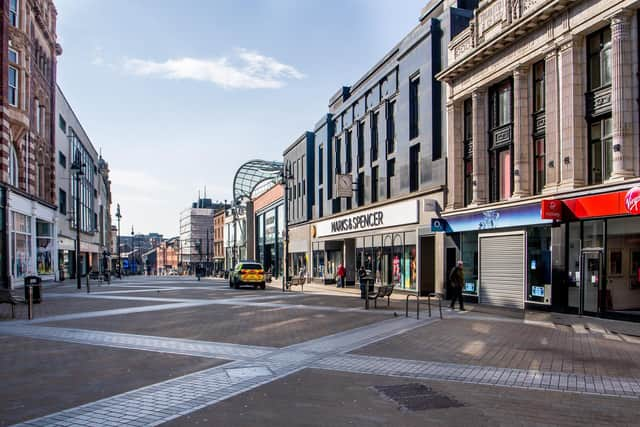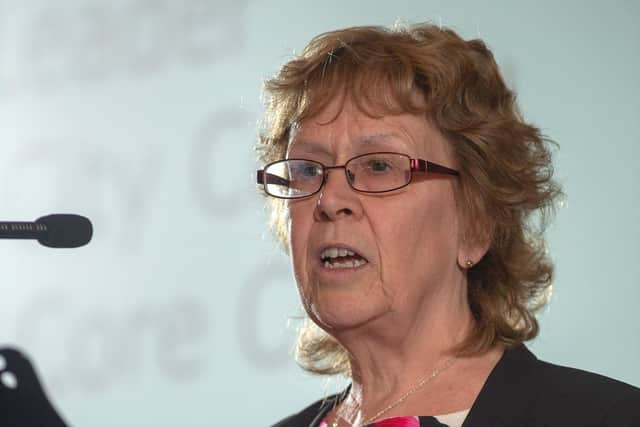Fears over how coronavirus effect will widen the city's social inequality crisis
and live on Freeview channel 276
With high streets largely closed, people out of work, youngsters missing out on education, friends and family unable to meet and restrictions placed on excercise and leisure - not to mention the health impact- there are no aspects of day to day life that have not fallen foul of coronavirus.
In this special series, the Yorkshire Evening Post looks at some of the deepest inequalities in the city and how, almost overnight, the task of addressing them became "significantly" worse.
Advertisement
Hide AdAdvertisement
Hide AdIt comes as independent charity, The Health Foundation, says the long-term health implications of the lockdown and economic shock will contribute to the toll on the nation’s health risks going well beyond the number of people who will die with COVID-19.


Over the coming week, we will take a look at the implications on health, child poverty, ethnic minorities, jobs and the economy and crime, in particular domestic violence.
Zest is a social inequality charity based in Gipton and runs groups to give increased access to food, health, excercise and socialising activities. They include cookery schools, men's groups, parent groups and breakfast clubs.
Dom Charkin is the operations manager and he told the Yorkshire Evening Post that the fall out from the coronavirus could end up being worse than the financial crash of 2008 and the years of austerity that followed.


Advertisement
Hide AdAdvertisement
Hide Ad"Undoubtedly, the areas that are most deprived are least equipped to deal with issues during lockdown. Health in these areas will be getting worse and we know people living with one or more long term conditions - the effects of COVID-19 can be more severe."
However, Mr Charkin said going forward it is the grass-roots and local groups, which are best placed for tackling such issues, are the ones that are battling to survive.
He said: "The big concern is that the magic money tree suddenly blossomed and this will need paying back. We have just come out of ten years of austerity and this is going to be as significant, if not worse. You start wondering, if the last ten years have made a reversal on things like life expectancy in the poorest areas, how will this affect these people?
"Smaller local charities doing their best to support are under severe financial strain because funding has dried up or being re-directed. If they go, the knowledge and expertise go with them and that will be dreadful.


Advertisement
Hide AdAdvertisement
Hide Ad"A lot of fundraising has dried up for big operators. Take the London Marathon, it is a huge earner and they have to replace that income and have the means to hoover up grants. I am not taking anything away from them, but that environment becomes a lot more competitive and smaller, local charities don't have the teams to just write funding bids. These charities are doing great stuff but they are not the ones that have the real local knowledge and you can't underestimate that."
The latest figures from the Office for the National Statistics show that some of the highest death rates in Leeds can be found in some of the more disadvantaged areas.
Read More: Find out which Leeds postcodes had the most coronavirus deathsFor example, up until mid April, Pudsey had 13 deaths across its four postcode areas, Bramley had 10 deaths, although data also includes Upper Armley and the highest death totals in Leeds were recorded in Colton, Austhorpe and Whitkirk (14) and Seacroft North and Monkswood (eight).
Mr Charkin added that the work Zest does in poorer areas will change as they can't meet with people but ways of working will have to change. Judith Blake, the leader of Leeds City Council said this was one of the most challenging periods of her career in local authority but praised Leeds for its resilience.
Advertisement
Hide AdAdvertisement
Hide AdShe said: "No-one has ever seen anything like this. The extent of the work that we have to do is absolutely enormous but there is resilience, partnership, people coming together to look at ways of doing things different."
The city council has been involved in distributing 10,000 food parcels and accommodation in hotels has been found for 200 rough sleepers and it is hoped the pandemic has kickstarted ways for them to get their lives back on track.
Coun Blake added: "Because of the work we were already doing in our communties, the support teams and the fact we kept children's centres open, we have been able to hit the ground running and get support into the communities."